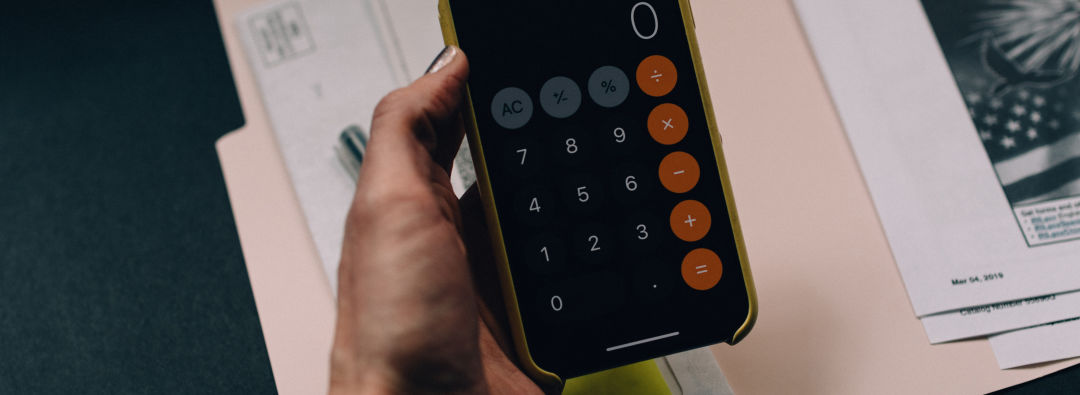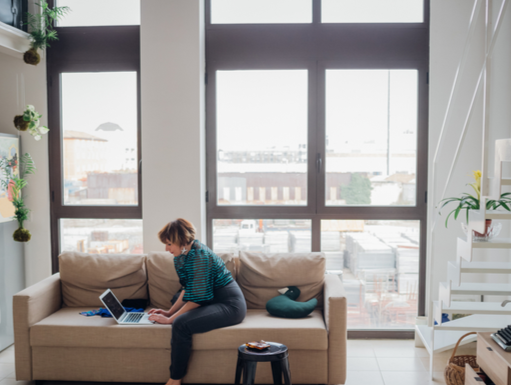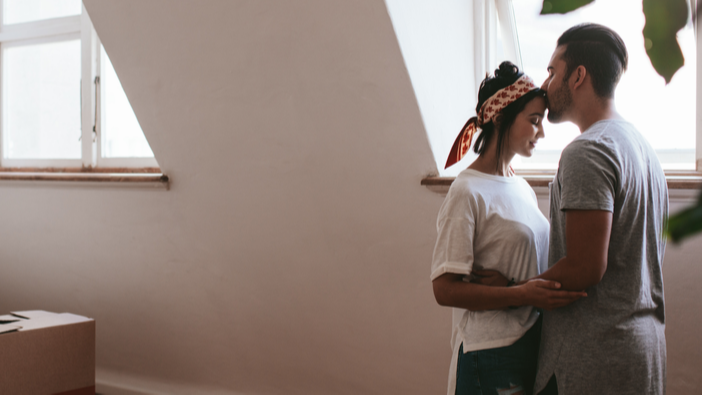By using our site, you agree to our cookie policy.
Your complete mortgage guide
When you’re buying a home, securing a mortgage can feel overwhelming — that’s OK. We’re going to walk you through the entire process, from the different types of mortgages to whether you need a mortgage broker to early repayments.

At Strike we offer stress-free mortgage advice with access to over 90 lenders and 12,000 products. But we’re getting a little ahead of ourselves. Let’s start with the basics.
Firstly, what is a mortgage and why is it so important? If you're applying for a mortgage in 2023, it helps to have an understanding of what you're applying for. A mortgage is essentially a loan — usually a big loan — that’s secured against the property you are buying. Because most of us will never be able to buy a property outright, lenders agree to give us a loan that we pay back, with interest.
They’ll look at things like your credit score, your income, and any outstanding debts and decide if you’re ready to take on a loan — more on that in a minute. What is a mortgage?
Not sure if you’re ready for a mortgage? Don’t worry, we’ll talk you through it. The first thing is to make sure a mortgage is the right choice for you. There’s a lot to consider.
Do you have a steady income? Do you have savings? Are you convinced that you can pay to upkeep your new home and make repayments at the same time? Before you apply for a mortgage

Make sure you feel ready to make this big decision.
Then it’s time to work out whether a lender thinks you are ready. This means having your income as high as possible and as few debts as you can.
You can check your credit score through companies like Experian, Callcredit, Checkmyfile, and Equifax — often for free or as little as £2. Make sure there are no mistakes on the report.
You can also do a few things to make yourself more appealing to lenders. Just paying your bills on time, especially through direct debit, shows that you're reliable — and making sure you’re on the electoral roll with the correct address can make a difference.
If you don’t have much credit, you might want to consider taking out a credit card — but only if you’re sure you can (and will) make payments regularly. No shopping sprees, no missed payments — just proving you’re a reliable borrower.
The deposit — the amount of money you put down when buying a property. Deposits are key to buying your new home — and most lenders have a minimum threshold you have to meet, which is expressed as a percentage of the purchase price. What’s a deposit and why are they so important?
Generally, the minimum deposit you need is 5%, but deposits can sometimes go as high as 40% — and they normally fall on the higher side for new build properties. When you're considering how much to put down, make sure to think long-term. A bigger deposit means lower payments, which can be helpful if you don’t have a huge income or if you want to save money on interest in the long run. If you already own a home, then chances are you’ve built up equity that can be used as a deposit on your next purchase or you can move your mortgage with you — more on that later.

When you’re ready to apply for a mortgage, there are a few different options to choose from. They may sound a little confusing, but the clue is often in the title. Don’t worry, we’ll break it all down for you.
Firstly — what are you repaying? You have two options.
Repayment – This is the traditional mortgage type — and often the best choice. You make monthly payments that cover both the amount you borrowed (known as the principle in financial jargon) and any interest on top. You’re repaying the loan until it’s paid off. It’s that simple. Interest-only – Here, you’re only paying off the interest. This allows you to have control of the property, but you’re not actually repaying the initial amount you borrowed or purchasing the home outright.
Next, interest types — there are a few ways interest can be calculated.
Fixed-rate – Fixed-rate loans mean you agree on the interest rate when you take out the loan and it stays the same for the entire length of the repayment period — for years or even decades. It’s the most popular option, because there are no surprises. Tracker – With a tracker mortgage, your monthly rates might vary over time because the interest rate fluctuates with the Bank of England’s base rate. Discounted – Some mortgages start with lower payments for an initial period, but then they go up to higher monthly payments after a fixed period. Types of mortgages
If you’re getting a mortgage to invest, rather than live in a property, those look slightly different.
Buy-To-Let – If you’re looking to buy a property to rent out, rather than to live in, you may want to consider a buy-to-let mortgage. Changes to the tax relief on buy-to-let mortgages have made them a less appealing option more recently, but they are still available. Let-To-Buy – If you want to buy a new home to live in, while renting out your current home, you might be able to use a let-to-buy mortgage. You’ll normally end up with two mortgages, one on your former home that you’re renting and one on the new home you’re living in.

Your income is often the single biggest factor when deciding a mortgage."
The term “getting a mortgage” can be sort of misleading, because what actually happens is that you get pre-approved for a mortgage first. You go to your lender or mortgage advisor and get an agreement in principle, which you might hear referred to as an “AIP”. This lets you know how much you can borrow.
How do you get pre-approved? Your lender will take into consideration everything we’ve talked about above, so expect them to look at a huge range of factors — your credit score, any debts, your deposit size, your typical outgoings, and, of course, your income. How do I get pre-approved for a mortgage?
Your income is often the single biggest factor when deciding a mortgage. Most lenders will only loan you around 3.5 to 4 times your income — something they call a loan-to-income ratio. So if you earn £40,000, you will probably be able to borrow around £140,000 to £160,000 if you have good credit and no major outstanding debts.
If you’re buying with someone else, they’ll look at your combined salaries — so keep that in mind.

Depending on your current financial situation and in the current climate, a mortgage broker can be an invaluable resource — especially if you’re self-employed — because they fight to get you the best deal. But they usually will cost you. They might charge a flat fee, a percentage of the mortgage, or even an hourly rate, so make sure it’s worth it for you.
Just looking for some guidance? Don’t worry, we offer stress-free mortgage advice to help you find the right mortgage and lender for you. In fact, we have over 12,000 mortgages options and many exclusive deals. Do I need a mortgage broker?
Worried about securing a mortgage in 2022? There are a few schemes in place to help you if you’re a first-time buyer. Mortgages for first-time buyers
Help To Buy Equity Loan: The government will give you a loan on eligible new-build properties. They’ll lend you up to 20% of the price (40% in London), so you can secure a home with just a 5% deposit. Visit their website for more details. Shared Ownership: Lets you buy just a portion of a home, usually between 25% and 75%, and pay rent on the rest. It’s a great way to start gaining equity if you can’t afford to purchase a full property. You can find out more on the Shared Ownership Scheme site. Lifetime ISAs: You can save up to £4,000 a year, tax-free — and the government will top up your savings by 25%. But the money has to go toward your first home or your retirement, so make sure to do your research.

It can feel like a lot of information, but just take it one step at a time. Check out our first time buyers guide for everything you need to know about buying your first home.
When deciding what kind of mortgage — and how big — you can afford, it helps to see the numbers in action. You can use a handy mortgage calculator to get a sense of your borrowing potential. How much will your repayments be?
Getting a mortgage can feel like a huge accomplishment — and it is, so take a moment to celebrate. But then, you have to pay it back — sorry about that.
In most cases, it’s very straightforward. You pay the monthly payment you agreed on for that amount of time you agreed to pay it — simple, right?
But things can get a little more complicated if you decide to pay back your mortgage early. Most banks allow you to overpay your mortgage a little bit, usually by about 10% a year. Any more than that and you may face early repayment fees, so it’s always good to read the fine print and talk to your lender if you have any questions. If you have some extra cash, it may make sense to pay other debts off first — like if you have a credit card with a higher interest rate than your mortgage. Run the numbers and see what works for you. Paying back your mortgage
What if you still have a mortgage on your home, but you’re looking to move to a new one? Don’t worry — it’s really common. There are a couple of different options on how you handle your mortgage during a move. One is repaying your mortgage in full and getting a new one for the new property, but that may be subject to early repayment fees. You might want to transfer your mortgage to your new property — “porting” in mortgage jargon — which often makes more sense financially, so you’ll need to talk to your lender. Moving your mortgage

Fast, easy mortgage advice
Need help finding a mortgage?
We're taking the stress out of moving, which is why we offer simple and straightforward mortgage advice. We pride ourselves on offering fast, easy mortgage advice — without the jargon. It's the mortgage advice you've been looking for. We’ve teamed up with the Mortgage Advice Bureau and have access to over 12,000 mortgage deals from over 90 lenders.

useful guides
We're here to help

Cost of selling a house
From conveyancing to removals, there are many costs involved in selling a house. We’ll make sure you’re prepared.

Selling your house tips
Ready to Strike? We break down the step by step process of selling your home, from the best time to sell to how to get the best price.

How to sell online
The entire world has gone virtual — isn’t it time estate agencies caught up? Here’s how you can sell smarter and cheaper online.

First-time buyers guide
Looking into your first move? Congrats! Here’s everything you need to know about being a first-time buyer.
Frequently asked questions
How do I get a mortgage?
Most people get a mortgage through their bank or another lender — or they might go through a mortgage broker. Your ability to get a mortgage depends on a lot of factors, but it will largely come down to your income, any debts, and the amount that you’re trying to borrow.
Is a mortgage broker worth it?
Is a mortgage cheaper than rent?
Is a mortgage AIP (agreement in principle) final?
How do mortgage interest rates work?
Is my mortgage a debt or an asset?
How does a first time buyer get a mortgage?
Strike feel free
Copyright © Strike Limited 2024

